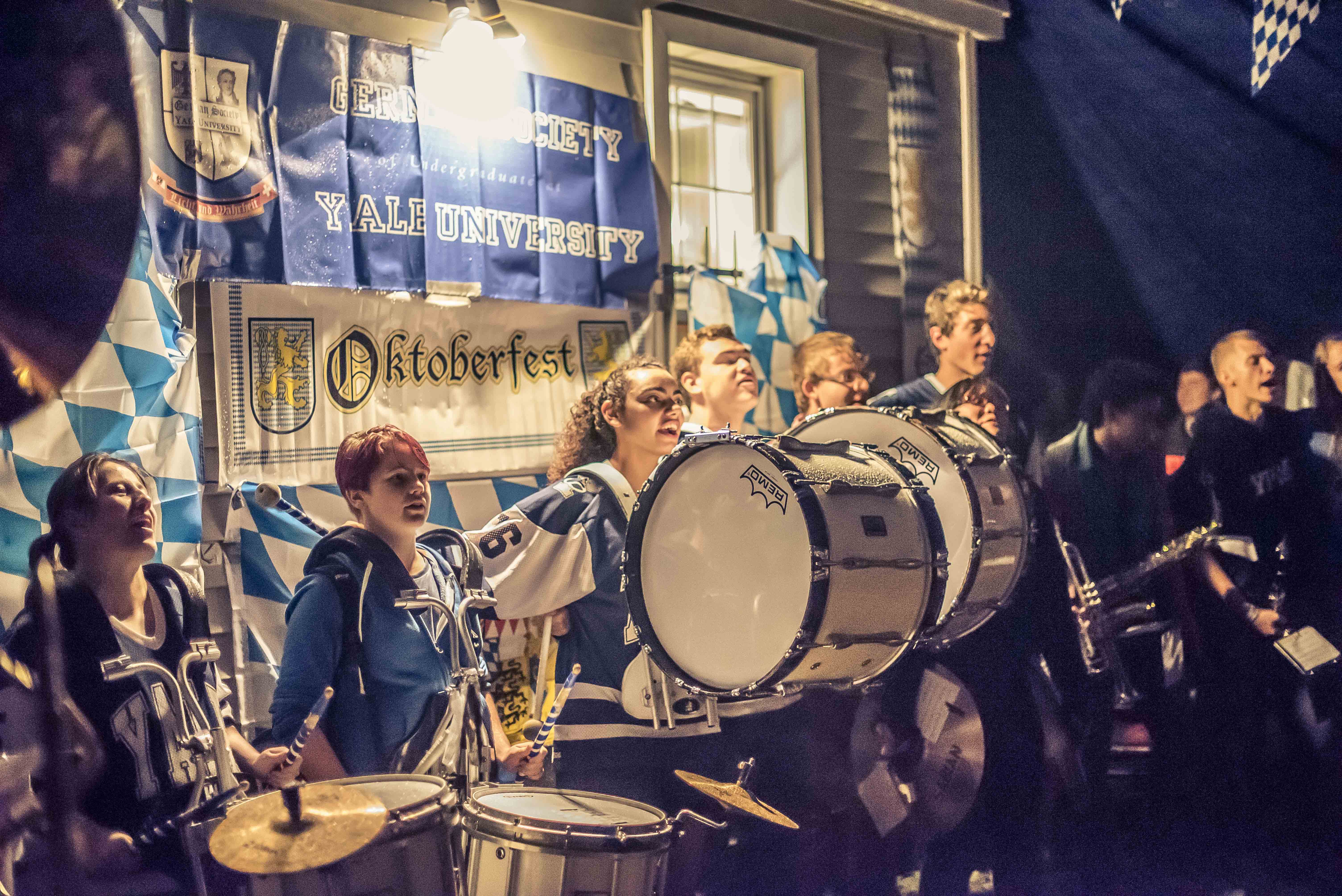
At the Yale German Society’s third annual Oktoberfest — a traditional German beer festival that is celebrated around the world — event organizers had a clear priority: promoting safe drinking.
The event, which took place at the Alpha Epsilon Pi fraternity house on Friday evening, featured a beer garden and traditional German beverages, in addition to culinary specialties such as salted pretzels and bratwurst. But instead of focusing on the event’s alcoholic offerings, which have been highlighted in the past, organizers wanted to promote a campus understanding of German culture without making alcohol a focal point. To that end, this year was the first that organizers — the Yale German Society, in collaboration with AEPi — actively reached out to Yale’s Alcohol and Other Drugs Harm Reduction Initiative to ensure that the event was being organized in compliance with undergraduate regulations.
“Despite Oktoberfest being a cultural event, many people perceive it to be strongly associated with drinking,” event head organizer Philipp Arndt ’16 said. “We were trying to highlight the cultural aspects of Oktoberfest and have good, imported German beer — the kind that you would drink to enjoy and not to get drunk — available for those over 21.”
Last year, AODHRI contacted the German Society with concerns that the group had promoted Oktoberfest in a way that focused on the alcoholic beverages that would be served. Although a meeting between board members of the German Society and the AODHRI staff resolved all issues, Arndt said, this year he contacted the office right at the start of the semester for assistance in planning the event, and to make the process as transparent as possible.
This year, on the Facebook event for Oktoberfest, organizers emphasized that the event’s focus was on German culture and tradition, and not on drinking, “especially not ‘drinking to get drunk.’” In addition, it was not advertised that there would be alcohol at the event, although the German Society did sell beer mugs several weeks in advance.
“The Yale Undergraduate Regulations forbid us to inform you whether there will be alcoholic refreshments available at the event, but note that — just in case you stumble upon some beverage that contains alcohol — you have to be 21 to drink in [Connecticut], and no alcohol will be served to minors at any German Society event,” the event page noted. “Please note that Oktoberfest is a cultural event and not a party.”
In addition, no hard liquor was served at the event, although this policy is not new.
Arndt added that the AODHRI staff emailed the organizers after the initial meeting to tell them that they were pleased with their work.
AEPi president David Ribot ’17 noted that the German Society’s partnership with AODHRI contributed to the fraternity’s willingness to host the event at its house for the first time. Johannes Behringer ’18, president of the German Society, said having the support of AODHRI reassured the event organizers that they were not doing anything wrong.
The physical layout of the event also contributed to a safe party environment for all. Previously, the event has been hosted at the heavyweight crew house, but attendees were not allowed inside the building and were required to stay in the yard. This year, Arndt said, the organizers specifically looked for a group that had a house with a backyard where both spaces would be available.
“At AEPi we also have room inside the house, which means that we can divide the event into two areas — one for people who want to have more chill and one for more partying,” Behringer said.
Students who attended the event said they had very positive experiences, and they commended the German Society for its approach to alcohol and safe drinking.
Lena Nasrallah ’18 said the fact that the group served food, and did not have hard liquor, made the event less about getting drunk and more about having a good time with friends.
Students also said the number of people who appeared drunk to an unsafe level seemed lower than at other social events, and they again attributed this to the lack of hard alcohol served.
The way Oktoberfest was set up — with distinct wristbands for those under and overage, ID control at the entrance and a diverse audience of undergraduate and graduate students, Yale employees and “non-Yale germanophiles” — made the event a very safe space for everyone, Arndt said.
“Germans have the stigma of drinking a lot, and we are definitely advocating for responsible drinking only if you’re over 21,” Behringer said. “No matter what scale, our events are always held in this spirit.”
Oktoberfest has been held in Bavarian Germany since 1810.







